Breast ironing, also known as breast flattening, is the pounding and massaging of a pubescent girl’s breasts, using hard or heated objects to stop or slow the development of breasts in young girls, supposedly to “protect them from sexual harassment, rape and early pregnancy”.
Breast ironing is common in West and Central Africa, including Guinea-Bissau, Chad, Togo, Benin, Guinea-Conakry, Côte d’Ivoire, Kenya and Zimbabwe.
It’s particularly prevalent in Cameroon: there, the number of girls who have been subjected to breast ironing is estimated be as high as one in three (around 1.3 million).
Female Genital Mutilation (FGM) stands as one of the most horrific forms of injustice done to young girls on the continent. Its effects and consequences are well known and activists are hopeful that the world will see the end of the practice within a generation. But there are other harmful forms of mutilation that African girls face under the guise of protection and the preservation of virtue. Unlike the highly publicised FGM, which claims to ensure cleanliness and better marriage prospects, prevent promiscuity and preserve virginity, breast ironing is a silent practice done to combat the scourge of gender-based violence. However, like FGM, breast-ironing has been identified by the UN as one of five under-reported crimes relating to gender-based violence.
According to Wikipedia, breast ironing is typically carried out by the girl’s mother to ‘protect’ the girl from sexual harassment and rape, prevent early pregnancy that would tarnish the family name and allow the girl to pursue education rather than be forced into early marriage.
Breast ironing is mostly practiced in parts of Cameroon, where the perception by boys and men is that if a girls breasts have begun to grow’, she is ready for sex. The most widely used implement for breast ironing is a wooden pestle normally used for pounding tubers. This is followed by leaves, bananas, coconut shells, grinding stones, ladles, spatulas, and hammers heated over coals.
The practice has also been reported across West and Central Africa, in Benin, Chad, Ivory Coast, Guinea-Bissau, Guinea-Conakry, Kenya, Togo and lower down in Zimbabwe.
Modern Reasons
One wonders what place such an unnatural practice would have in a modern, enlightened African society. Breast ironing in recent times has been accredited to the earlier onset of puberty, caused by dietary improvements in Cameroon over the last 50 years. The mutilation is designed to make teenage girls look less “womanly” to deter unwanted male attention, which could lead to all the aforementioned consequences.
Statistics show that half of Cameroonian girls who develop under the age of nine have their breasts ironed, and 38% of those who develop under the age of 11.
Accordingto a 2011 German development agency GIZ report, one out of every 10 Cameroonian girls has been subjected to breast ironing.
“I Went Through This Horrific Ritual” Ghanaian TV/Radio Host, Urica Davies Shares Her Story On “Breast Ironing” https://t.co/VmhoVDk8zk pic.twitter.com/LerQxnKBxA
— s24stream (@s24stream_) April 11, 2018
Magdalena Randall-Schab, from the UK National Committee for UN Women, said to Express in 2015: “These violent acts are not only perpetrated by men on women, but by older generations of women on young girls. The issues therefore are quite complex as we are dealing with deep-seated cultural beliefs, but there is a need to help people to see that however well-intentioned they may believe their acts to be, they are acts of violence.”
The practice cuts across socio-economic barriers, but rather than use barbaric tools such as stones and hammers, the rich opt to use an elastic belt to compress the developing breasts, thus preventing them from growing.
The website of London-based charity Women’s and Girl’s Development Organisation (Cawogido) states: “Breast ironing is a well-kept secret between the young girl and her mother. Often the father remains completely unaware. The girl believes that what her mother is doing is for her own good and she keeps silent. This silence perpetuates the phenomenon and all of its consequences.”
Health Consequences
Breast ironing is extremely painful and can cause tissue damage. Even though there have been no medical studies on its effects, medical experts warn it might contribute to breast cancer, cysts, depression, and perhaps interfere with breastfeeding later in life.
Other possible side-effects reported by the German development agency GIZ include breast infections, formation of abscesses, malformed breasts and the complete stunting of one or both breasts. Due to the range in the severity of the practice, from using heated leaves to press and massage the breasts, to using scalding grinding stones to crush the budding gland, health consequences vary from benign to acute.
Eradication
Unfortunately, because of the highly clandestine nature of the practice and that it is perpetuated by women in their family settings, eradication would be difficult.
There is no known law against breast ironing, despite efforts by survivors and rights agencies to get the governments to ban the practice. Additionally, no one has been arrested or convicted in Cameroon for breast ironing despite the over 4 million victims.
Read: Fighting violence against women and patriarchy: Leave no one behind
A GIZ survey found that 39% of Cameroonian women opposed breast ironing, with 41 percent expressing support and 26% being indifferent. This indicates that the best bet for eradication is education. A UNICEF report indicates that the motives behind the practice are obviously ineffective as flattened breasts have not reduced the rate of teenage pregnancies and rape incidents. The report states that 38% of children in Cameroon are married by their 18th birthday; that more than a quarter of adolescent girls are mothers; and 20% of them drop out of school after getting pregnant.
Making this information widely known in the countries and communities where the practice is done, as well as stressing the heavy physical and psychological consequences, may begin an upward trend towards eradication.
Speaking about the less commonly known forms of gender-based violence, well intentioned or not, will mean a future where Africa’s daughters are not taught to be quiet as they are mutilated and tortured for tradition or as some kind of convoluted protection. Society’s refusal to lay the burden of sexual and gender-based violence solely with the perpetrators is the reason young female victims suffer tenfold.
Speaking about the less commonly known forms of gender-based violence will mean a future where Africa’s daughters are not taught to be quiet as they are mutilated and tortured.
The fact that young girls experience torture and mutilation in anticipation of possible gender violence is an indication that patriarchy must end, not just for the good of woman kind but for the betterment of all mankind.
“Don’t teach your daughters to be careful, teach your sons not to rape!”
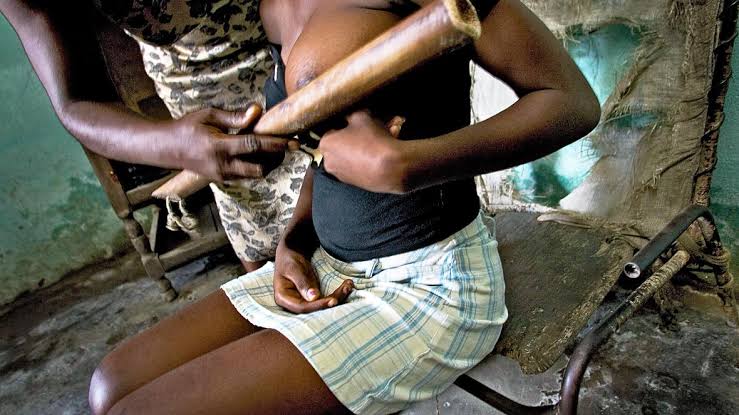
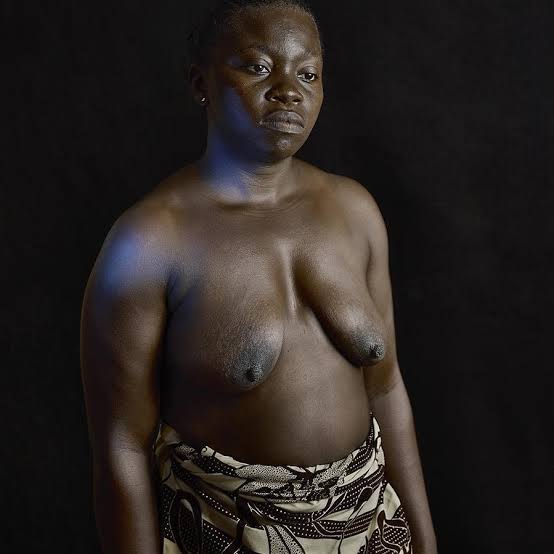
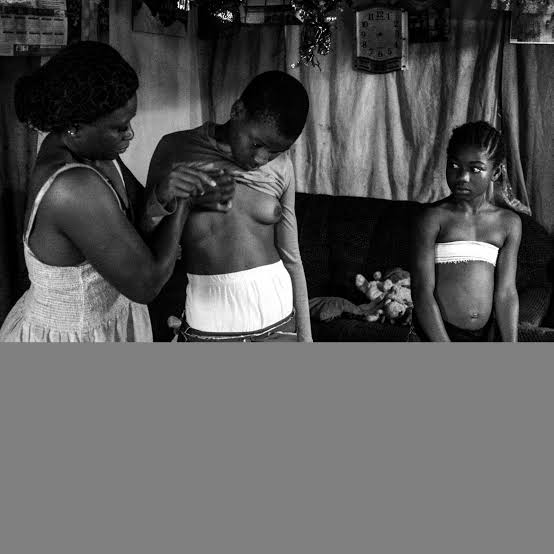
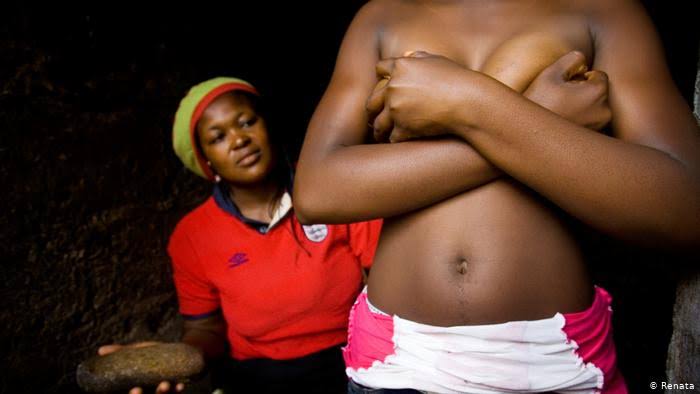
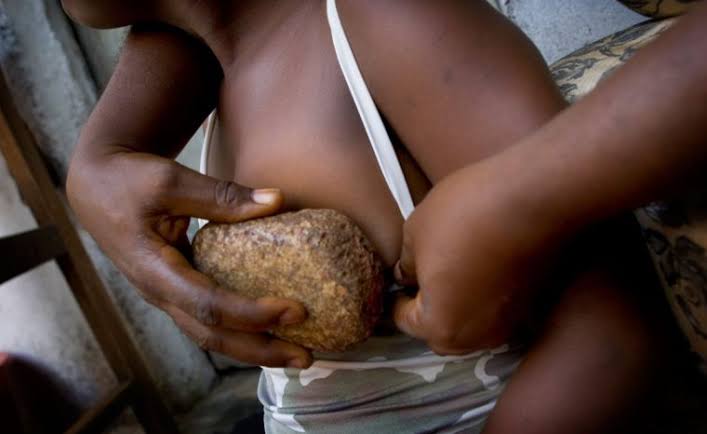
© Africa & RNW



